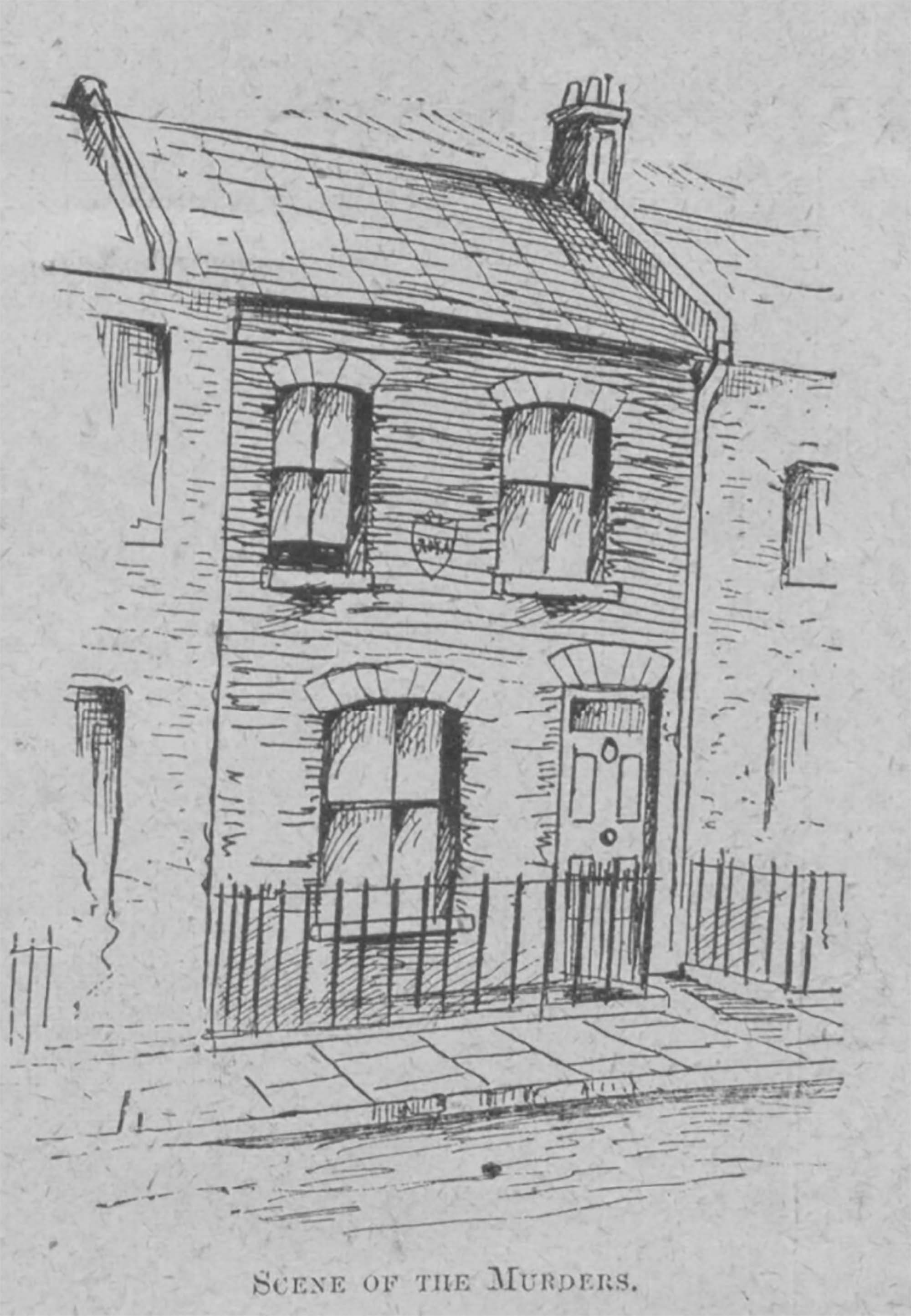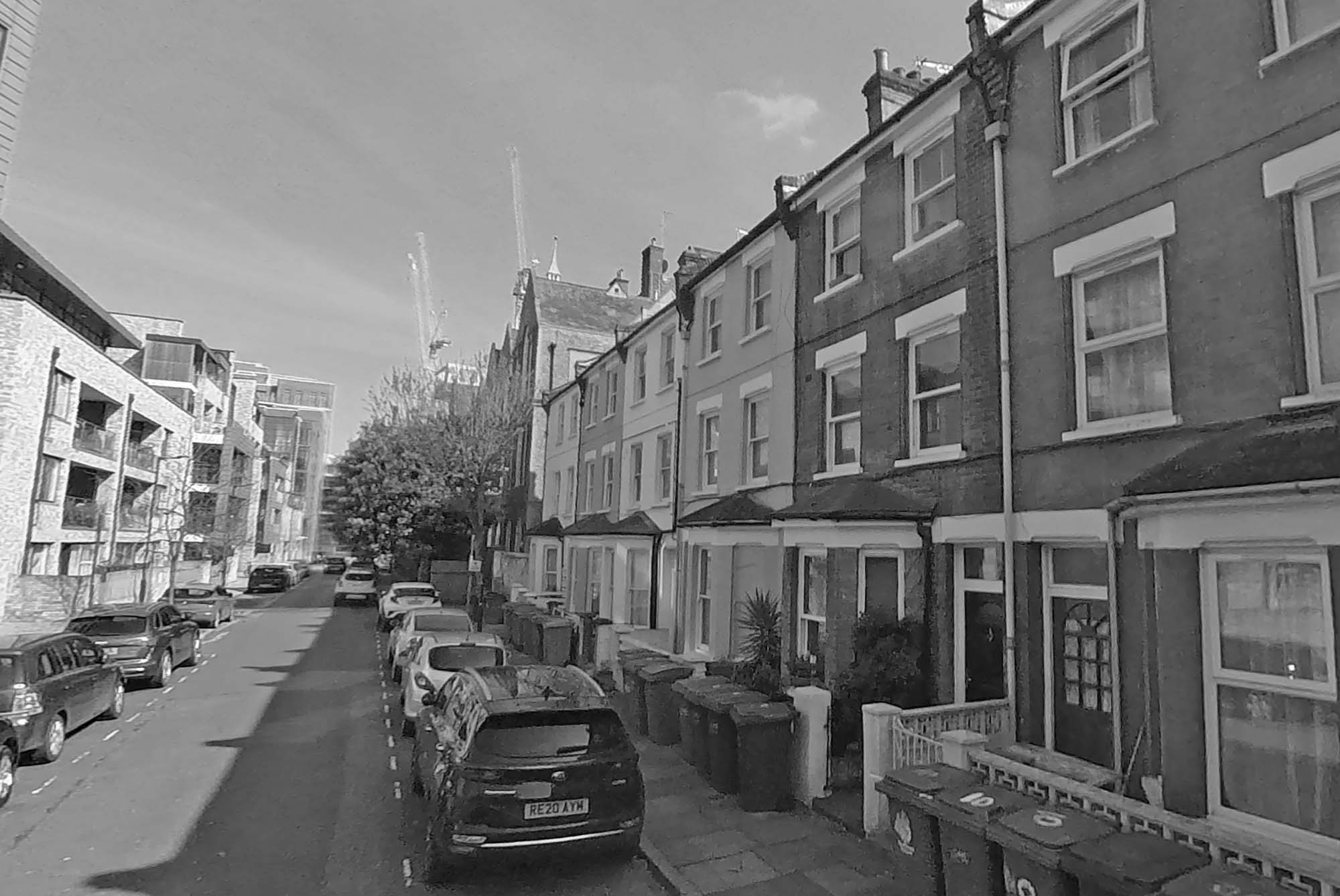

Age: 27
Sex: male
Crime: murder
Date Of Execution: 4 Oct 1899
Crime Location: 11 Boundary Lane, Walworth, London
Execution Place: Wandsworth
Method: hanging
Executioner: unknown
Source: http://www.capitalpunishmentuk.org/1837.html
Robert Ward was convicted of the murder of his two children 5-year-old Margaret Florence Ward and 2-year-old Ada Louisa Ward and sentenced to death.
He had been out to work in Peckham on the morning of Thursday 20 July 1899 but came home about midday and took his children inside and cut their throats.
Robert Ward had been a bricklayer and had married about six years earlier, however, their married life was not happy.
Robert Ward said that his wife was always aggravating him and nagging him and constantly called him all sorts of names. He said that she was always telling him to take his hook and she had somebody else to take his place and she would not let the children go near him. He added that she often told their children that if they went near him that she would kill them.
He said that there had not been many quarrels until 12-18 months after the marriage but that after that they were almost constant but added that he would not quarrel with her.
He said that she had told him several times that the father of Margaret Ward was a soldier who had been away in India. It was noted that on the Sunday before the murders that Robert Ward and his wife had gone to Robert Ward's sister-in-law's home and that the soldier had been there, having been in India for the previous seven years and that whilst there, something was said about the soldier having been Robert Ward's wife's old sweetheart after which Robert Ward left his wife and went home alone.
He said that when he later asked his wife whether that had been the soldier she had previously said was the father of Margaret Ward that she denied it but that he found that it was true two or three hours later.
It was later noted that it was sworn that the soldier had been overseas for nine years but that Robert Ward didn't believe that.
Robert Ward said that for the previous two or three years that tea had not been ready four nights out of six and that whenever he made a complaint that his wife would call him foul names.
He said that his wife didn't neglect their children, but said that they were not always as they should have been.
He said that on the previous Christmas that he had taken his wife and children to his brother's house and that whilst there his wife had thrown a knife at him but that it had missed and cut his brother's wife on the face. He said that she later followed him and his brother to a public house and got drunk.

The landlady at 11 Boundary Lane said that Robert Ward and his family had lived in her house for almost three months.
She said that she didn't see Robert Ward go out in the morning of Thursday 20 July 1899 but that she saw him come home at about noon. She said that his wife had been home as well and their two children playing outside.
She said that she then spoke to his wife in the washhouse and that his wife then went upstairs and came back down about 15 minutes later and then went up again and came back down at 12.45pm and went out.
She said that after that she heard the youngest child cry after her mother and then saw her come out onto the landing and that as a continuation of that cry she heard the eldest cry, 'Don't daddy', a number of times. She said that she listened and as they continued she called out, 'What's the matter Mr Ward', but got no answer. She said that she then saw Robert Ward chase a child into the front room. She said that she then ran upstairs and saw Robert Ward kneeling in front of Margaret Ward with his left arm round her shoulders and blood pouring from his chin. She said that Margaret Ward was resting by the side of her little bed with a large pool of blood on the floor but that she couldn't see Ada Ward.
She said that she then asked, 'What have you done Mr Ward', and that he turned and spoke to her but she didn't hear what he said.
She said that she then went for a policeman.
She said that when she got back, before the policeman, she saw Margaret Ward at the feet of Ada Ward and Robert Ward lying to the left of them and a white handled knife lying at his feet, open, the blade being covered with blood.
The landlady noted that Robert Ward's wife had nagged him whilst they were living with her.

The policeman that arrived said that when he first saw Robert Ward he thought that he was dead and guessed that he had bled a great deal. However, he said that he was able to walk out of the house without assistance. He said that Robert Ward said, 'I have done it, and I want to die as well. I did it with the penknife that lies at my feet'.
Robert Ward's wife's sister said that she lived in Clerkenwell and that she used to see much of Robert Ward and her sister until they went over water about three years earlier.
She said that on 16 July 1899 the soldier that had been in India called on her. She said that she had known him from before he joined the army but had not seen him for nine years. She said that it was ten or fifteen minutes before she recognised him.
She said that she and her husband then took the soldier out to a public house near to Boundary Lane and spoke to her in Robert Ward's presence, saying, 'My husband is round corner with friend'. She said that they then proposed to go back to Robert Ward's house for the evening.
She said that they first introduced the soldier by another name to see if they would recognise him.
However, she said that they eventually all went back to her house to spend the evening after Robert Ward and his wife both said that they were bad friend's with the landlady.
She said that when she later referred to the soldier by another name that Robert Ward's wife guessed who he was. She said that the children went to the soldier and he made a great fuss with them as well as with hers.
She said that the soldier then said in Robert Ward's hearing, 'Your wife's an old sweetheart of mine', noting that that was at about 10pm. She said that until then things had been comfortable but that after that Robert Ward became dreadfully angry and that he asked the soldier whether the child was his, to which he replied, 'No', but that he wished that it was. He added that it couldn't have been his as he had been away in India for so long, and he pulled his papers out to show him.

She said that Robert Ward then wanted his wife to go home with him, but that he then went out, but came back 20 to 30 minutes later and demanded drink. She said that they offered him a glass of ale, but he refused and asked his wife again whether she was going home to which she replied, 'No, why don't you stay and be sociable'.
She said that he then went away, noting that he had been about to strike his wife but she had stopped him.
She said that her sister and the children stayed the night with her, with her sister and Ada Ward leaving the following afternoon and her sister returning on the Wednesday to take Margaret Ward.
She said that she never saw the children alive again.
She said that she went to see Robert Ward at the hospital on the Friday afternoon and he told her that it was all her sister's fault, saying, 'If she had come home on Sunday night it would never have happened'.
Robert Ward appeared at the Old Bailey on 15 September 1899 and was sentenced to death. He was executed at Wandsworth on 4 October 1899.
The side of Boundary Lane that had the odd numbers on it has since been redeveloped, but the side with even numbers still exists.
see National Archives - CRIM 1/56/9, HO 144/278/A61342
see Daily Telegraph & Courier (London) - Friday 21 July 1899
see Penny Illustrated Paper - Saturday 29 July 1899
see Illustrated Police Budget - Saturday 29 July 1899, p16